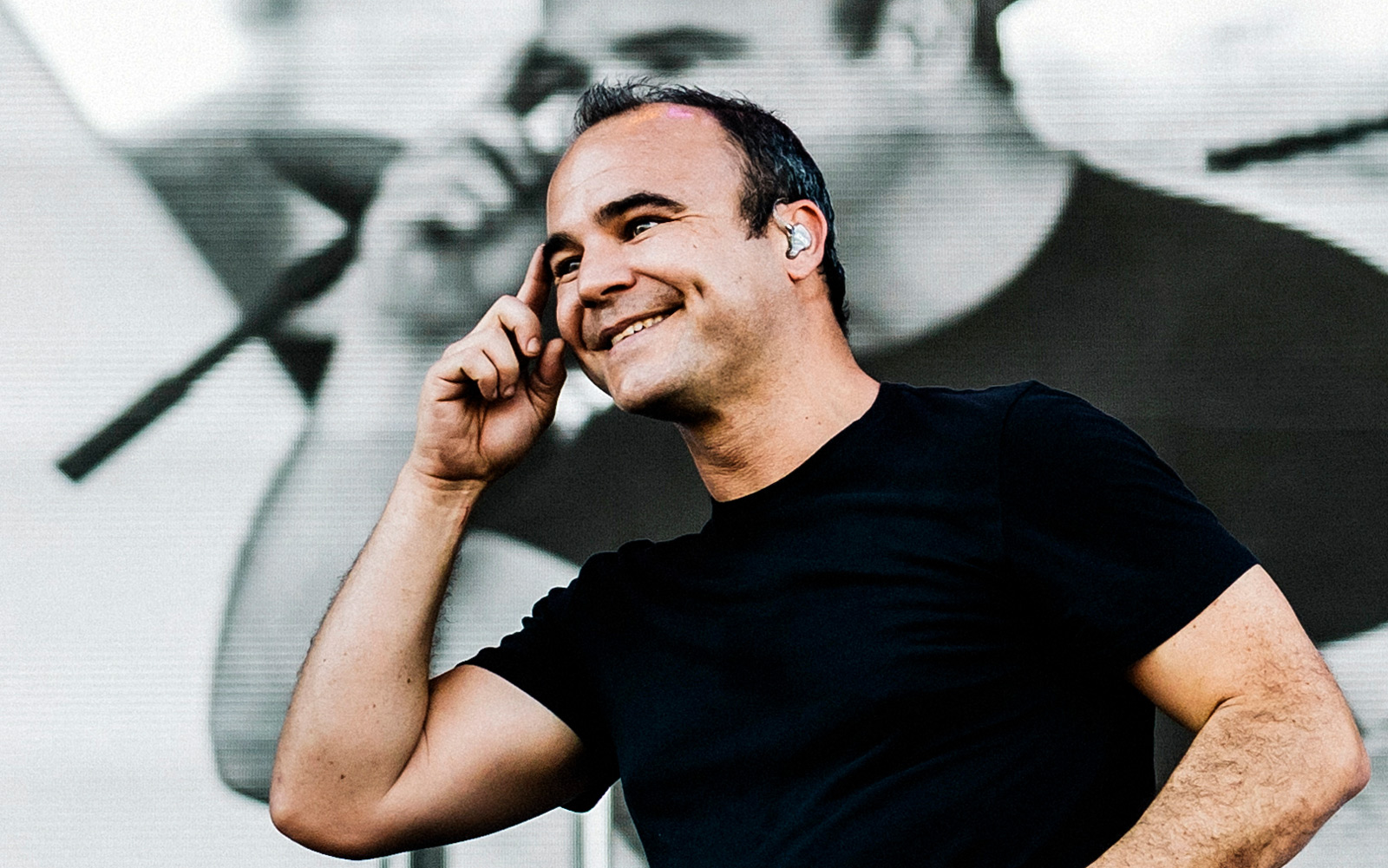 Photo by Daniel Cavazos
Photo by Daniel Cavazos
Samuel T. Herring never felt like he fit in. It was that very sense of not belonging that drove him toward music. That drive has taken him other places, too: Fronting the synth-pop band Future Islands, collaborating with underground rappers, even acting in a series on Apple+ TV. It sparked travels from Greenville, North Carolina to Baltimore and Sweden, searching for a place to call home.
But feeling out of place can also have a dark side. For years, Herring tried to hide a drug addiction that almost killed him. He’s still trying to heal—making music is one of the things that helps him fight off the darkness. “I understand how people feel alone,” he says. “People want to go inside of themselves and go to these dark places, and they don’t want to accept help or understanding. It’s hard [when you’re feeling that way] to hear from people who you don’t feel are going through the same things.”
When he was a teenager, meeting Gerrit Welmers and William Cashion helped Herring believe it was possible to feel less alone. The trio would start their first band, Artlord & The Self-Portraits, as “just a group of friends having fun,” but it would impact the rest of their lives. “Not to be funny with words, but it is like finding those islands,” Herring says. “Collecting the strength and knowledge of self through other people who make us feel OK.”
The first “island” was Welmers, Herring’s best friend in their hometown of Morehead City, North Carolina. The second island, Cashion, Herring met by approaching him on campus in Greenville to compliment the Back to the Future sunglasses Cashion had gotten from Pizza Hut. Cashion, assessing Herring’s facial hair, responded sincerely: “Cool sideburns.”
Originally meant as a performance art project, Cashion says they envisioned Artlord & The Self-Portraits as a busking act like the Violent Femmes, with battery-powered synthesizers and Herring playing the role of Locke Ernst-Frost, the Artlord. The group’s premise apes the myth of Narcissus: The Artlord has returned out of loneliness after eschewing fame in isolation, but he’ll only play shows with replicas of himself—hence the Self-Portraits. Herring played him with absurdity, adopting a snooty, prickish persona, like Mike Myers in Sprockets, “trying to be rude within the confines of my ‘art is great and you’re not a genius like me,’” he says. Intended to be a commentary on celebrity worship, the group accidentally proved their thesis when by becoming the band to see in town. You can hear it in the live recording of “Little Line Drawing,” where a co-ed shouts “I wanna fuck the Artlord!” When they passed out flyers, Cashion would be amazed by Herring’s uncanny ability to remember everyone’s names and faces. “That’s how we got our start,” says Cashion. “Throwing a keg party, and we made ourselves the headliner. Then other people would ask us to play their keg party. Eventually, the local club asked us to play.”
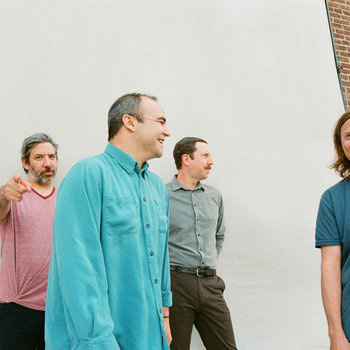







Vinyl LP, Compact Disc (CD), Cassette




The more Artlord & The Self-Portraits became a party band, bursting with dancey rhythms and fronted by a loveable personality, the more the concept behind Artlord eroded. Rather than sticking with a zany, Devo-style approach and ending up another Electric Six, they wrote “Bouncing Away,” a song that recalled New Order’s “Your Silent Face,” with hints of the crestfallen lyricism and melancholy arrangements that would become the backbone of Future Islands’s sound. “I can hear that it’s proto-Future Islands,” Cashion says. “We just struck upon something in the way that Gerrit and I play off each other musically. And then how Sam plays off that music with his vocal melodies. It’s a special kind of language that we found for ourselves early on.”
That language meant a great deal to Herring, as the Art Lord became less a persona, and more a disguise—another exercise in finding the strength to be OK. “It allowed me to speak about my feelings of isolation and my ideas about art and love in a way that didn’t feel vulnerable because I was playing a character,” Herring says. “‘I don’t feel that way. That’s the character. I’m not sad and alone. I’m fine.’”
Sam wasn’t fine, though. Selling weed on campus had turned into selling coke when a home break-in stripped Herring of his means to pay back his supplier. Soon, Herring had picked up a rapidly growing habit. Artlord & The Self-Portraits disbanded in late 2005, having outgrown its initial gimmick. Stuck with a touring commitment with alt-country band The Texas Governor, Herring, Cashion, and Welmers formed a new group and, in February of 2006, Future Islands played its first show. After recording the EP Little Advances, Herring dropped out of college, came clean to his family about his drug use, asked for help, and then moved to Asheville, North Carolina to kick the habit.
A year later the band members trickled, one by one, into Baltimore, at the urging of Dan Deacon and Height Keech. There, they fell in with a gang of weirdo, ex-art-school-meets-warehouse-squatters who spawned a local scene that produced Spank Rock, Lower Dens, and Beach House. Herring and Cashion describe a feeling of healthy competition with those bands—the kind where they’d be so inspired by their friends’ performances that they would then go home to work on becoming a better band. That drive paid off with In Evening Air in 2010 and its follow-up, On The Water. In 2014 they signed to 4AD for their breakthrough record Singles. They toured relentlessly behind each record, building a diehard fan base that was moved by Herring’s emotive performance style.

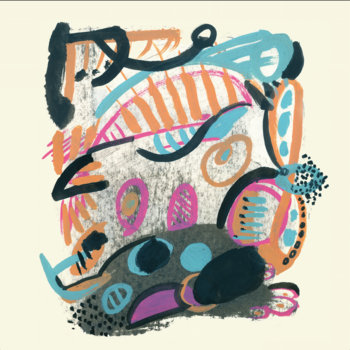
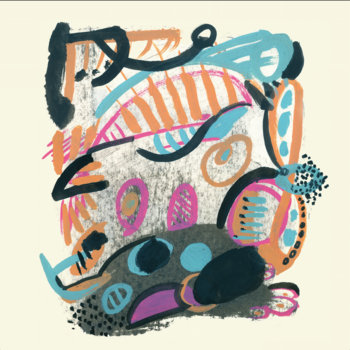
Compact Disc (CD), Vinyl LP


But Herring couldn’t stay clean. The gram-a-day coke habit from college ballooned into a post-breakup habit of 24-hour benders in seclusion, with two grams and a case of beer. “It took me years later to realize how dark it was,” he says. “I needed to touch the bottom so that I could come up again. There might have been a part of me that wanted to die, but I didn’t want to die. I wanted to see what the worst was.” Compounding Herring’s addiction was the environment in Baltimore, of which Herring recalls, “it’s not just you, it’s all around you. I don’t know how many friends I’ve had die. I went to the funeral. Cried. Then went home and got fucked up.”
The song “Beach Foam” is about one of those days, in which Herring, Cashion, and their friend went to the beach after a funeral to reflect only to be greeted by miles of algae. That day Herring wrote, “Standing on a beach somewhere/ Looking for something to be,” wailing to the tides, “maybe, one day I’ll have what I want.”
Herring rarely wrote about addiction in Future Islands. The same is true of music he records under his own name, like the BADBADNOTGOOD collaboration “Time Moves Slow,” on which a newly single Herring confronts the aftermath of a breakup: “You just didn’t love me like I do/ Like I love you/ The sad thing is we’re better off this way.” But it comes to the fore in the music he makes under his rap alias Hemlock Ernst, which he calls, the real Sam, “warts and all.”
“It’s a strong distinction,” Herring says. “In Future Islands, I’m speaking more to the human condition surrounding love. With Hemlock, I speak a lot about addiction. About my early drug use and trying to get over that.”
Hemlock Ernst started taking on a larger role in Herring’s creative life in 2015, when underground rappers began tapping him for features. First came an EP with Madlib under the group moniker Trouble Knows Me, followed by the milo song “Souvenir” off So The Flies Don’t Come. As it turns out it was milo—the rapper now known as R.A.P. Ferreira—who encouraged the emergence of Hemlock Ernst. Herring was initially reluctant to do the feature on “Souvenir,” until Ferreira issued a challenge: “Oh, I thought you were a real writer.”

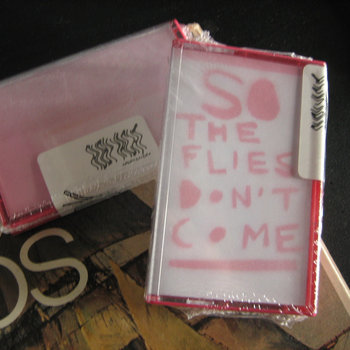

Cassette

“Then he sent back ‘Souvenir,’ and I was like, ‘That’s what the fuck I thought,’” Ferreira recalls with laugh. The two formed a bond that led to Hemlock Ernst’s debut LP Back At The House in 2019, produced by Kenny Segal and released on Ferreira’s label Ruby Yacht. “Sam Herring only wants to give to hip-hop,” Ferreira says. “He don’t want to take anything. That’s so rare for any rapper. Most rappers are like, ‘I love rap and it’s my vehicle to make a million.’ That is not how he feels. Rap is a pure art form to him, and he honors that so much.”
Embraced by the underground—both Segal and Ferreira praise Herring’s deep knowledge of hip-hop—Hemlock amassed a network of guest verses on songs by AJ Suede, Open Mike Eagle, Blockhead, Busdriver, The Lasso, Beans, and Blu, to name just a few. Hip-hop was Herring’s first love in high school. He went to battles at rival high schools, and would drive hundreds of miles to see acts like Antipop Consortium. Now, decades later, Herrings has featured on a record by Antipop’s Beans. (That collaboration continues on the third Hemlock Ernst record, produced entirely by Icky Reels, which will be released by Beans’s label Tygr Rawwk Records.)
He’s been at it so long that he’s amassed a deep archive of orphaned verses and songs—some written for unrealized projects with Madlib and Action Bronson, others written in what feels like another lifetime. He revisited those on 2023’s The Fall Collection, produced by Height Keech, whose work Herring says positively altered the material’s emotional weight. Both that album and Back At The House are built around Herring’s North Carolina memories of boosting cars and breaking into empty beach houses to throw parties. “40s on the Front Porch” was originally written over a beat that recalled “My Mind’s Playing Tricks On Me” by The Geto Boys, but on The Fall Collection, it lives among buzzsaw guitars, stabbing horns, and rumbling drums that deliberately jaundice those rose-colored recollections. The first verse of “Eulogy” concludes, “Lucky for me and mines/ I had a second chance.”
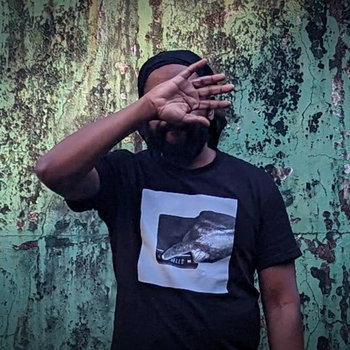
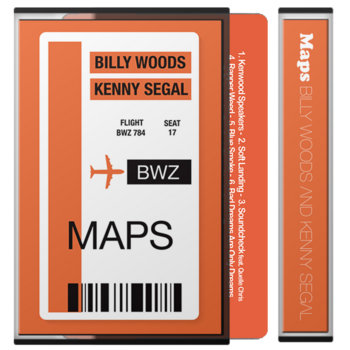
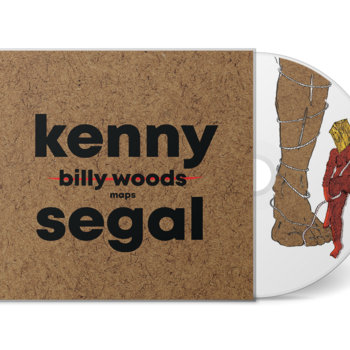
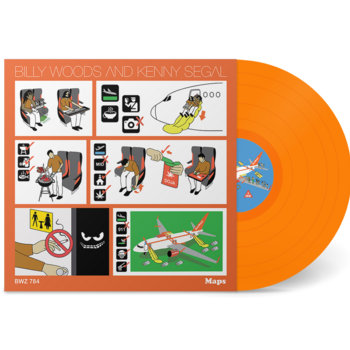

Cassette, Compact Disc (CD), Vinyl LP



Unless you know the intimate details of Herring’s past, Hemlock Ernst could be misunderstood just as another persona. Even Segal originally thought he was doing a thing many rappers do, inventing a larger-than-life character. But through conversations around the song “Addicted Youth,” Segal realized the track was autobiographical. “It’s not cautionary tales [that] he came up with,” Segal says. “By the time we got to ‘Less Unsettled,’ I fully understood that he was talking about his real friend who had passed.”
Then there’s “Thrill” from Future Islands’s 2020 record As Long As You Are, a song that addresses Herring’s demons by revisiting the Tar River in Greenville, near where he and Cashion went to school. The song opens on a news story about the river flooding, but as the song goes on, Herring sees his own addiction as a flood that will consume him: “That old Tar River/ Just keeps rising / Inside me.”
Herring has been clean for two years and counting. It took the breakup that informed People Who Aren’t There Anymore for Herring to end a cycle of self-destruction. The album tracks a long-distance relationship that fell apart after the pandemic, but this time Herring was able break the spell and stop trying to heal himself with drugs. In “The Fight,” he summons a new sense of resolve: “I won’t fade away/ I will face every day.”
“It’s really about what we do in those times of turmoil and break up,” he says. “That fight happens everyday in our lives. Being a person who is an addict, a person who has dealt with suicidal thoughts, and continues to, that’s what the fight is. The fight is against those struggles.” Instead of choosing isolation he threw himself into new challenges—one of which was accepting a role in the Apple+ TV series The Changeling. As a live performer, Herring has always instilled Future Islands shows with a sense of the theatrical. Over the course of the show, he assumes different characters who enter and exit from song to song. Some delicately grasp at imaginary trinkets, others stalk the stage in a crouched two-step, and some have tremendous range—like on “Tin Man” where he’s balanced between weeping and guttural rage. When The Changeling creator and showrunner Kelly Marcel, a long-time fan of Future Islands, saw Herring on stage, she reached out to him about auditioning for the show. “If I had still been in a relationship, I would have been like no thank you,” Herring says. “Instead, I was very much in a lets try anything zone. My life has upended. Sure, I’ll try to be an actor.”








Vinyl LP, Compact Disc (CD), Cassette




While on set for The Changeling, Herring got a call from billy woods and Kenny Segal who were working on the album Maps. They envisioned Herring on the hook of “FaceTime,” sensing the road warrior lifestyle of Future Islands might suit the album’s themes. Within hours Herring sent back, “Another night in Texas, feels like weeks on the road/ Piss in Mississippi, stopped in New Mexico/ I ain’t seen my folks/ And strangely I feel right at home on my own.”
“I am constantly searching for a new place where I can be whatever person I am now,” he says. “I don’t want to be seen as who I was five or 10 or 15 years ago, because that’s not who I am now.” And even though past Future Islands songs catalog foiled relationships and dark times, for Herring, the meanings have changed. The new record features a song called “Peach,” the closing words of which, Herring says, are meant for Future Islands’s audience: “I won’t give you up.” The song, he says, is not about “the person that’s going away. It’s the people who are still there waiting. The people that still care are the thing you’re not giving up.” Whether as Artlord, Hemlock Ernst, or just Sam from Future Islands, Herring’s lyrics are mementos of the past, shot through with an ache to understand. Herring has been living through his art not just for his audience, but for himself. He’s still getting lessons from the younger Sam who wrote 14 years ago in “Tin Man”: “You’ve got a lot to learn in your life.”
Hearing the lyric again today, Herring flips it, “I’ve got a lot to learn in my fucking life.”







